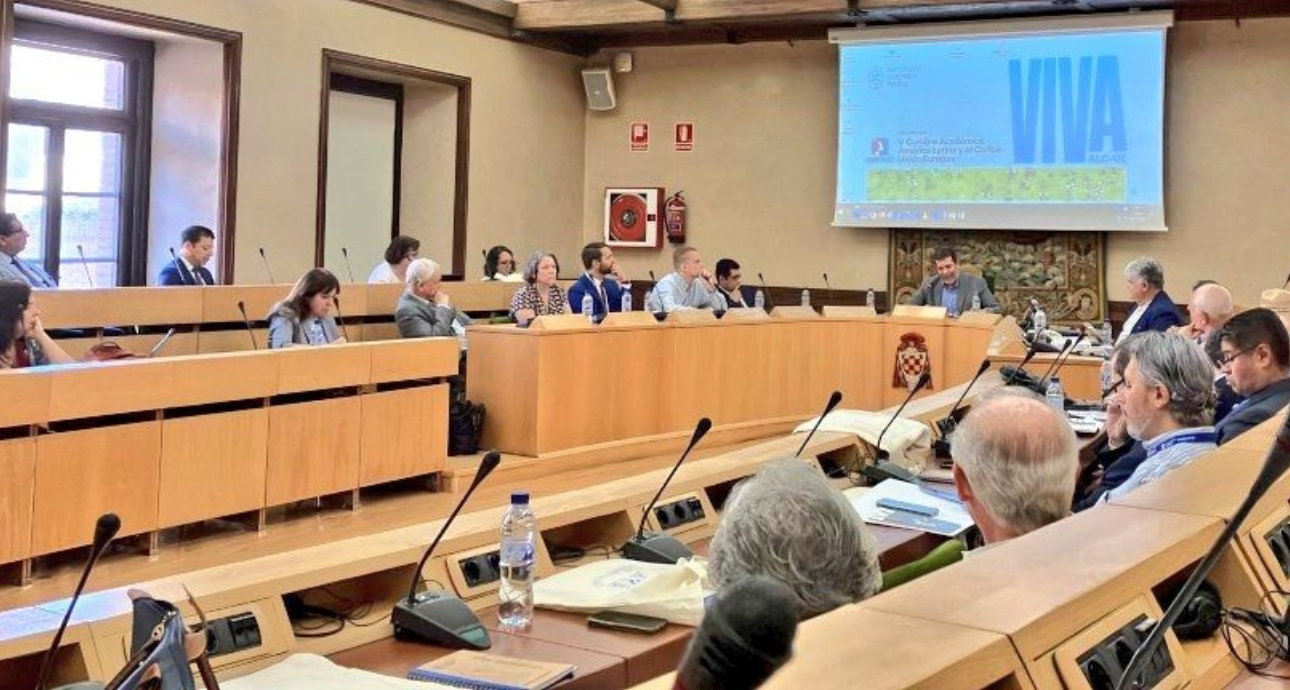A delegation from RedCLARA consisting of the Director of International Cooperation, Academic Relations and Communications, Mark Urban, the Academic Relations Manager, Tania Altamirano, and the Academic Projects Coordinator, Laura Castellana, participated in the 5th EU-LAC Academic Summit, which took place from July 6 to 8, in Alcalá de Henares, Spain, within the framework of the efforts of the recently signed EU-LAC Digital Alliance.
The Summit focused on the fundamental components of the strategic relationship between the European Union and Latin America and the Caribbean in the fields of Higher Education, Science, Technology, and Innovation, addressing issues such as the vision of university rectors on the bases for the construction of a common workspace, the future of higher education, gender, democracy, economy, and Climate Change, as well as the concept of Meaningful Connectivity. In this context, RedCLARA had a highlighted participation in three sessions, presenting the Copernicus Academy and the BELLA II project andthe role of these two pillars of the Digital Alliance for the consolidation of the objectives proposed in the event.
The first session was the Panel "Climate Change: Alternatives for Europe and Latin America and the Caribbean", where Laura Castellana presented the Earth observation strategy and how the Copernicus Academy is being built based on it, to impact the capacity building and education in the region, through initiatives such as the BELLA Hackathon.
On Friday, July 7, the Latin American advanced network led a reflection group called "Connectivity with meaning: Science, Technology and Innovation, the role of higher education and LAC-EU cooperation", which also included the participation of its chief executive director, Luis Eliécer Cadenas. In this group, Cadenas explained the BELLA II project and the role of RedCLARA promoting Meaningful Connectivity and impacting education -particularly higher education-, creating a digital ecosystem that facilitates relationships and exchanges between the different actors of the academy, the government, and the market. Also in July 7, Mark Urban participated in the Colloquium "Universities, Circular Economy and SDGs in the bi-regional space: LAC-EU shared experiences, government, university and business convergences." Urban shared how RedCLARA and BELLA II impacts universities and research centers and contributes to the achievement of the United Nations Sustainable Development Goals (SDGs), through initiatives such as Earth observation.
As a result of the three days of work, the Summit participants reiterated their commitment to work in the respective countries and regions for the creation of the Euro-Latin American and Caribbean Common Space for Higher Education, Science, Technology, and Innovation. Read the full statement here.
All the sessions were recorded and are available on the channel of the University of Alcalá on YouTube https://www.youtube.com/@uahes





